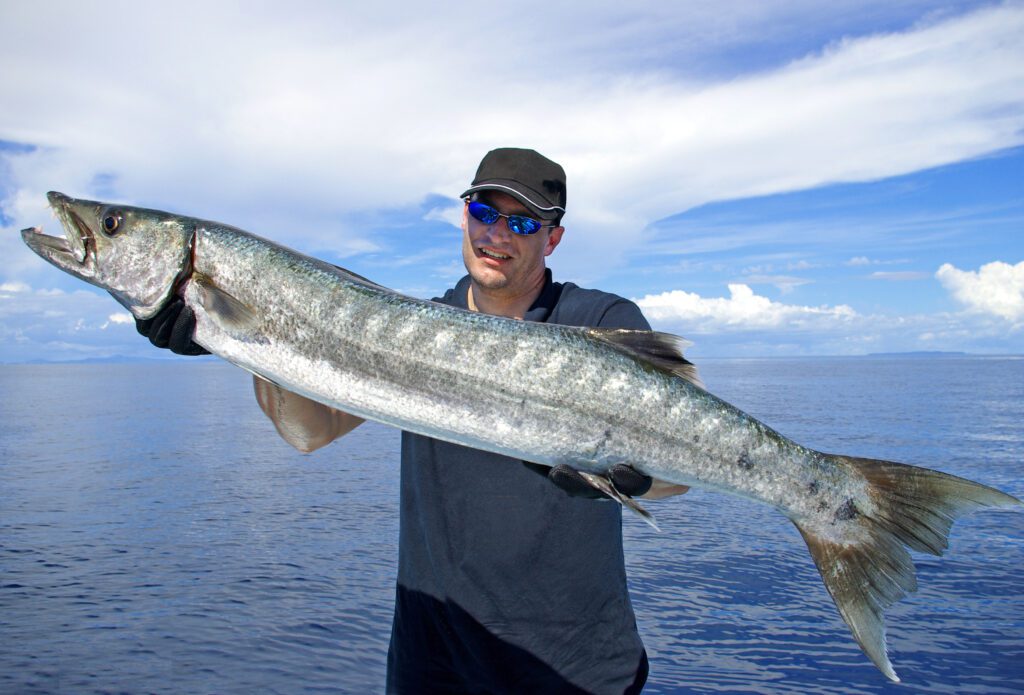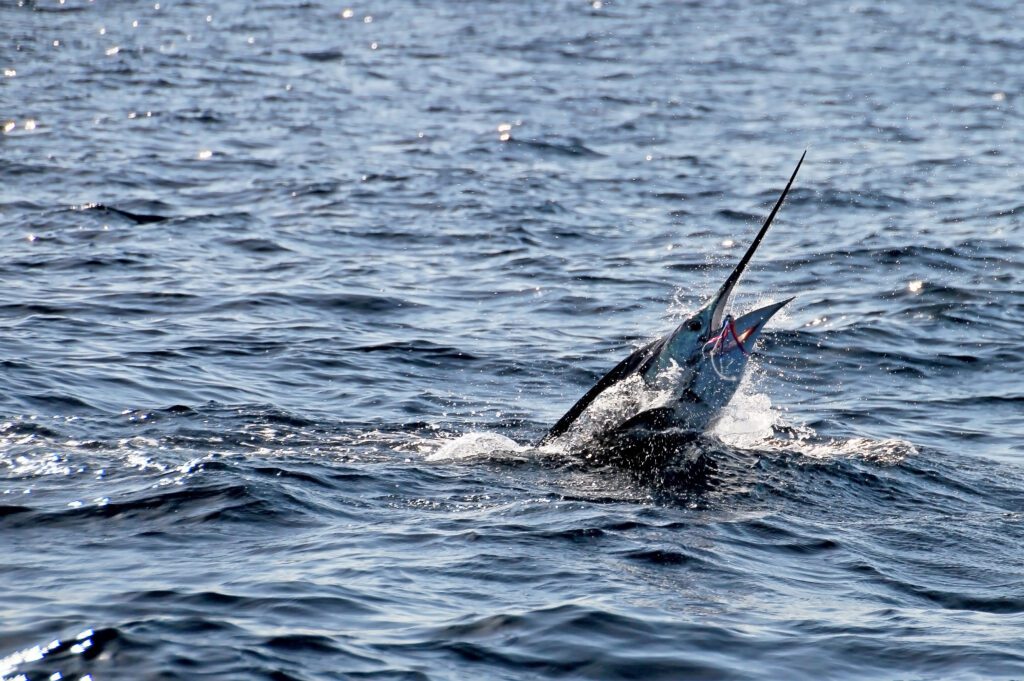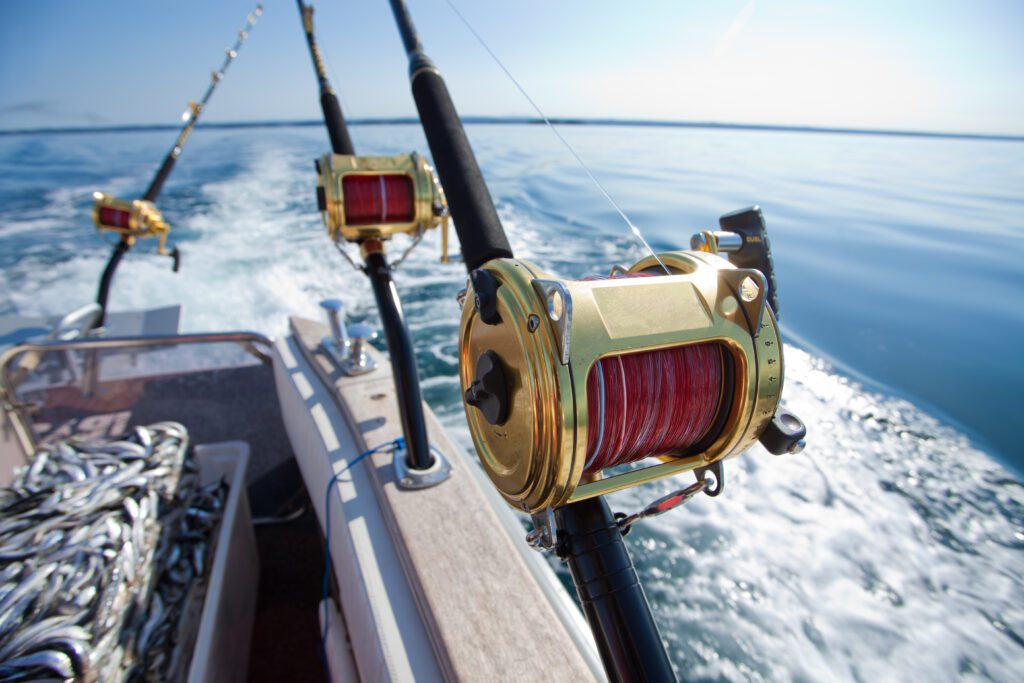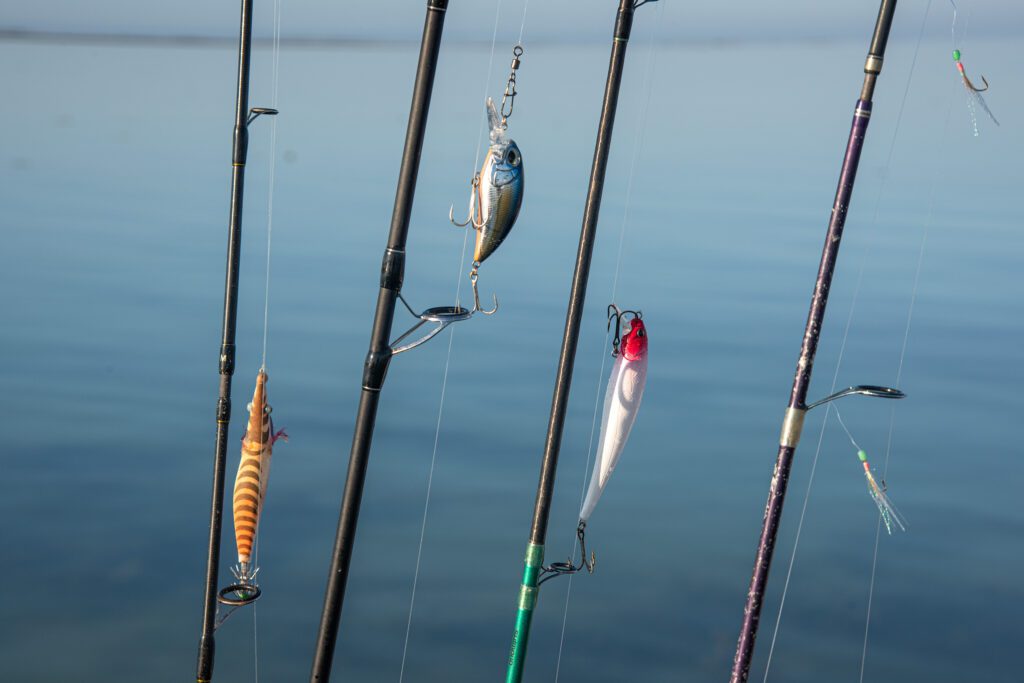Publication date: 21/05/2024
Boat fishing in the Mediterranean
With a surface area of 2.5 million square kilometers, the Mediterranean Sea is known as a boating paradise. Boaters enjoy magnificent scenery, year-round sailing and great destinations to visit.
In the Mediterranean, sailors stop off to enjoy their leisure activities on land or in the water. Often, depending on the type of seabed, they take advantage of the beauty of the waters to snorkel or dive. Did you know that the Grande Bleue is home to over half a thousand different species of fish?
The Mediterranean Sea is also a delight for sailor-fishermen: casting, trolling and longline fishing enthusiasts, in particular, have a field day.
Fish to catch from boats in the Mediterranean
The Mediterranean Sea is populated by billions of fish living near the coast, offshore, on the surface or deeper down. They are hunted down by fishermen from land, by pleasure fishermen sailing, drifting or anchored, and by those practicing underwater fishing, or shotgun fishing. Among the most common species of fish in the Mediterranean, here are a few you’re likely to encounter on your boat around Port Leucate:
- Sea bass:
Frequently spotted in the Mediterranean Sea, sea bass is also known as “sea bass”. It’s a large predator that can be fished with lures, spinning or casting-rammers. If you have the opportunity to catch it from the deck of your boat, this Mediterranean fish is ideal for barbecuing…
- The barracuda:
In the Mediterranean, barracuda fishing is reputed to be one of the most sporting of all fisheries: boaters who have had the opportunity to catch this fish while sailing are generally very proud of it! Barracudas are particularly powerful predators, reaching lengths of up to 2 meters and weights of up to 50 kilos. From your motorboat or sailboat, you’re sure to catch them trolling: curious, barracudas are often attracted by coloured lures. They can also be caught by trolling for live fish, such as garfish, oblades or squid caught beforehand.

- Bonito:
The bonito is a blue fish with dark stripes. It’s an oily fish, often compared to tuna or mackerel, and can be caught on board a boat by scrambling, casting or trolling.
- Conger:
The world’s largest eel, with a length of up to two meters and a weight of almost 70 kilos, the conger eel generally lives in rocky outcrops. It only comes out at nightfall to hunt and feed. To catch a conger eel, you need the right tackle to withstand the animal’s power.
- Sea bream:
Frequently found on fish stalls and restaurant menus, sea bream is another tasty sparid fish to be caught from boats in the Mediterranean. Around Port Leucate, they are caught with a lure, especially at night, when human activity diminishes.
- Denti:
Also known as dentex or common dentex. It is a carnivorous fish, and one of the most common in the Mediterranean Sea. Like other sparids, it can be fished with lures or vertically. It’s a combative fish that’s always a source of pride when caught by a boater.
- Swordfish:
There’s a good reason why swordfish is featured on so many boats and fishing tackle: it’s a legendary fish in the Mediterranean! It’s a very popular and sought-after species among sport fishermen, and often honored by Mediterranean chefs. With its long nose, or rostrum, which can account for up to a third of the animal’s total length, the swordfish is one of the fastest and largest fish in the Mediterranean…

- Blackbird:
Girelle fishing is very popular on the French Mediterranean coast. This small fish, also known as “damselfish”, is caught by longline fishing. This type of fishing is done from a boat, using one or more lengths of line. Each is fitted with one to three hooks and a sinker in the terminal position. The rod is not laid down, as in other support fishing techniques, but held in the angler’s hand.
- Lich:
The lich is another fish that fishing enthusiasts will be delighted to catch: this species can be up to 1.5 metres long and weigh almost 30 kilos, making it one of the biggest predatory fish in the Mediterranean. From boats, liches can be fished by trolling, using livebaits or lures, or vertically.
- Mackerel:
You probably know it for its good nutritional reputation, and its richness in omega-3 fatty acids. Mackerel is a pelagic fish frequently spotted in the Mediterranean, easy to catch from a boat, trolling, vertical or float fishing. Once caught, if not eaten, it can be used as bait!
- Oblade:
This is another frequently encountered Mediterranean fish. The oblade usually measures between 15 and 25 centimetres and feeds on plants or small invertebrates. Boaters catch them by trolling, using livebait or lures. Often served in restaurants, oblade is still a delicious fish!
- Pageot:
Pageot is a type of sea bream found in the North Sea, the Atlantic and the Mediterranean. Sailing from the Port Leucate marina, they are easily caught by vertical fishing or long-line fishing.
- Pagre:
Silver-pink in color, like the pageot, the pagre is another famous Mediterranean fish. It, too, belongs to the sparidae family, and is a particularly tasty and prized species. If you’d like to go boat fishing in the Mediterranean, catching this species will undoubtedly provide you with plenty of thrills: the pagre is a combative fish that has to be earned…

- Red scorpion fish:
You may know this Mediterranean fish for its bad reputation: with its venomous dorsal spines, it can be particularly dangerous. But what you may not know is that this red and white fish is caught in the Mediterranean for consumption. You can use, for example, the longline technique, vertical fishing or rockfishing.
- Red mullet:
Red mullet isn’t red, it’s pink! It can be recognized by its striped dorsal fin. Red mullet can also be caught on the Grande Bleue, either from a boat – using a trawler or a troll– or from an anchorage – using surfcasting.
- Sar:
Along with sea bream, pike-perch and denti, the sar is a member of the sparid fish family. Described as aggressive and combative, it is often sought after by thrill-seeking anglers. And just as well, there are plenty of them in the Mediterranean!
- Bluefin tuna:
Like swordfish fishing, bluefin tuna fishing is really a sport. In the Mediterranean, the average adult bluefin tuna measures 120 centimetres and weighs around 30 kilos. It’s a sea fishery that requires the right equipment, strength and determination! Bluefin tuna are generally caught on the hunt, i.e. by moving around the area with your boat, after spotting a flock of fish.

- Turbot:
Also in the Mediterranean, turbot is a large flatfish, to be distinguished from sole. Its body is elongated, slender and brown in color. It can measure up to 1 meter in length, and weigh up to 25 kilos! Turbot is generally found along gravel and sandy coasts, and can be caught particularly well by scraping a lure along the bottom. In the boaters’s lazarette, it’s still very popular…
Port Leucate, a convenient Mediterranean fishing port
Whether you want to fish ultralight or rockfishing, with small soft lures to attract rock fish, or whether you’re more interested in fishing with natural baits, for example to stalk a few species of sparid, you should enjoy sailing in the Mediterranean.
In our Leucate marina, you’ll find everything you need to welcome your boat comfortably, to enjoy year-round sea outings, and to equip yourself technically: we have space for 300 boats, can launch your boat in less than 5 minutes, and have a specialized fishing tackle store right inside the harbour.
From Port Adhoc Leucate, whether you’re a beginner or an experienced angler, a fan of rocky coastal fishing or Mediterranean big-game fishing, you’re sure to enjoy pursuing your passion!
When sea fishing in the Mediterranean or elsewhere, there are rules to follow
We recommend that you contact the Direction Interrégionale de la mer Méditerranée before any fishing trip.
Depending on the species concerned, you’ll have to comply with fishing seasons or periods, minimum sizes and quotas, mark your fish… For some species, you’ll have to practice “no-kill fishing“, i.e. you won’t be allowed to keep the fish you catch, whatever their size. You may also need to apply for a release permit.
Pay close attention to the rules in force at the time and in the area concerned, because sea angling requires everyone to follow the rules!

